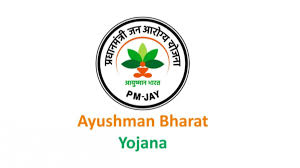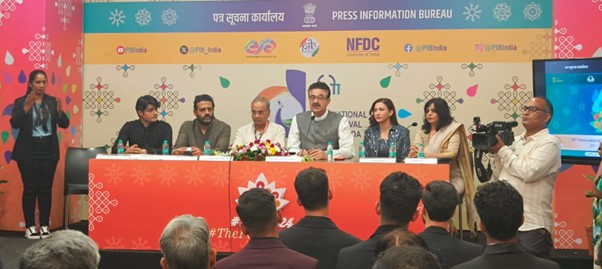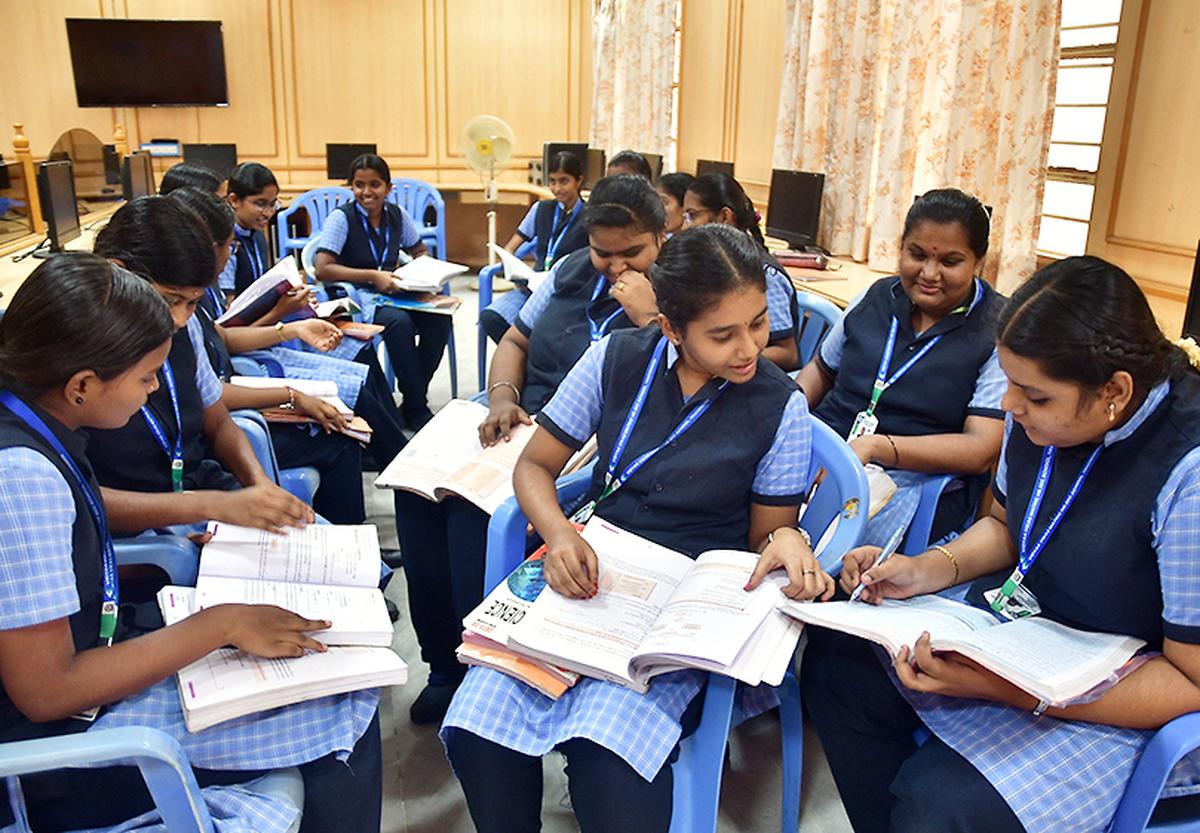Mukhyamantri Majhi LadkiBahin Yojana
- 13 Mar 2025
In News:
Ahead of International Women's Day 2025, the Maharashtra government has promised to deposit the 8th and 9th installment of Mukhyamantri Majhi LadkiBahin Yojana
Objective:
A flagship women-centric welfare scheme launched by the Maharashtra government in 2024 to provide monthly financial assistance to economically disadvantaged women and promote their socio-economic empowerment.
Key Features:
- Target Group: Economically weaker women aged 21 to 65 years, who are permanent residents of Maharashtra.
- Eligibility Criteria:
- Annual family income must not exceed ?2.5 lakh.
- No family member should be an income taxpayer.
- Financial Assistance: ?1,500 per month via Direct Benefit Transfer (DBT).
- Scheme Performance (as of Dec 2024):
- Total disbursement: ?17,500 crore
- Total beneficiaries: 2.38 crore women
Recent Update (March 2025):
- Installment Release: On the occasion of International Women’s Day 2025, the government released the 8th and 9th installments (?3,000 total) to 2.52 crore women for the months of February and March.
- Delay & Clarification: Due to technical delays in February’s payment, both months' amounts were disbursed together in March 2025.
Policy Outlook:
- Proposed Enhancement: During the 2024 election campaign, the government promised to raise the monthly benefit from ?1,500 to ?2,100.
- Current Status: No official decision has been made regarding the increase as of the 2025 budget session.
Ayushman Bharat Pradhan Mantri Jan Arogya Yojana (AB PM-JAY)

- 15 Jan 2025
In News:
Odisha has become the 34th state to implement the Ayushman Bharat Pradhan Mantri Jan Arogya Yojana (AB PM-JAY). The National Health Authority (NHA) of the Union Ministry of Health signed a Memorandum of Understanding (MoU) with the Department of Health and Family Welfare, Government of Odisha to onboard the state under the scheme.
Key Highlights:
- The scheme will be implemented alongside the existing Gopabandhu Jan Arogya Yojana in Odisha.
- It provides health coverage of Rs. 5 lakh per family per annum, with an additional Rs. 5 lakh for women members.
- Approximately 1.03 crore families will be covered under the scheme.
- Shri JP Nadda, Union Health Minister, emphasized that the scheme is the world’s largest and fastest-growing health coverage initiative.
- Shri Mohan Charan Majhi, Chief Minister of Odisha, highlighted that people will now have access to cashless treatment in over 29,000 empaneled hospitals.
About Ayushman Bharat PM-JAY:
- Launched in 2018 under the Ministry of Health & Family Welfare (MoH&FW).
- Targets 12 crore families (~55 crore beneficiaries).
- Provides cashless hospital coverage for secondary and tertiary care.
- Fully funded by the government, with cost-sharing between the Centre and states.
- Covers nearly 2,000 medical procedures, including major surgeries.
Since its inception, over 8.19 crore hospital admissions have been recorded, with ?1.13 lakh crore spent on healthcare for marginalized sections.
Prasar Bharati’s OTT Platform – WAVES

- 22 Nov 2024
In News:
Recently, Prasar Bharati launched its OTT platform WAVES, to cater to India’s increasing demand for digital streaming services.
Key Features of WAVES OTT Platform:
- Content Offered: A mix of classic content and contemporary programming, catering to various audiences.
- Target Audience: Aimed at Indians and those abroad wishing to stay connected to their Indian roots.
- Languages: Available in 12+ languages, including Hindi, English, Bengali, Marathi, Kannada, Malayalam, Telugu, Tamil, Gujarati, Punjabi, Assamese.
- Genres: Spanning 10+ genres, including infotainment, games, current affairs, and news.
- Free Access: Most content is available free to download and view, with exceptions for premium content.
- Additional Features:
- Video on demand.
- Free-to-play gaming.
- Radio streaming.
- Live TV streaming with 65 live channels.
- Online shopping via the Open Network for Digital Commerce (ONDC) supported e-commerce platform.
Content Highlights:
- Fauji 2.0: A modern adaptation of the iconic 1980s Shahrukh Khan show, focusing on lives of people who serve and protect India.
- Kakbhushandi Ramayana: An original show on DD National now available on WAVES, based on research of over 350 versions of the Ramayana worldwide. The show aims to provide a new portrayal of the epic, appealing to younger audiences.
Vision for WAVES OTT:
- WAVES aims to revive nostalgia while embracing modern digital trends.
- It serves as an inclusive platform that highlights Indian culture with an international outlook.
Why is T.N.’s education funding on hold?

- 17 Sep 2024
In News:
Tamil Nadu is yet to receive this year’s funds from the Union government under the flagship education scheme Samagra Shiksha. According to the State government, the Centre has linked these funds to the complete implementation of the National Education Policy (NEP) 2020, which includes provisions that the State has opposed, including the contentious three-language formula.
What is Samagra Shiksha and why has Tamil Nadu not gotten funds under it?
- Samagra Shiksha is an integrated Centrally-sponsored scheme for school education from nursery till Class 12, with components for teacher training and salaries, special education, digital education, school infrastructure, administrative reform, vocational and sports education, with grants for textbooks, uniforms, and libraries, among others.
- The scheme’s estimated outlay between 2021 and 2026 is ?2.94 lakh crore, with the Centre and States contributing funds in a 60:40 ratio. For 2024-25, Tamil Nadu’s allocation under the scheme amounts to ?3,586 crore of which the Central share is ?2,152 crore, with a first quarterly instalment of ?573 crore, which has not yet arrived halfway through the financial year.
- In a letter to Prime Minister Narendra Modi last month, Tamil Nadu Chief Minister M.K. Stalin accused the Centre of imposing a prerequisite for the fund’s disbursal, namely, the signing of a Memorandum of Understanding (MoU) for another Centrally-sponsored education scheme called PM Schools for Rising India (PM Shri).
- This scheme, being run from 2022-2027, aims to create 14,500 model schools across the country to showcase the implementation of NEP 2020, and has a much smaller project cost of ?27,360 crore. The Centre has sent at least 10 letters to Tamil Nadu from September 2022, asking the State to sign the MoU, which included an agreement to fully implement the NEP.
In March 2024, Tamil Nadu committed to signing the PM Shri MoU due to its link to delayed funding for the larger Samagra Shiksha scheme. However, after signing a modified MoU in July that excluded NEP implementation, the Centre found it unacceptable. In August, Chief Minister M.K. Stalin noted that states signing the MoU received funds, accusing the Centre of “denying funds to the best-performing States” for not complying with NEP. The Union Education Ministry labeled these claims as misleading, but Tamil Nadu has not received Samagra Shiksha funds due to the incomplete MoU.
What is Tamil Nadu’s problem with the NEP 2020?
Tamil Nadu Education Minister highlighted the state's objections to specific NEP elements, such as the three-language formula and curriculum changes. He stated that Tamil Nadu is already implementing many acceptable aspects of the NEP through its own initiatives and warned that linking Samagra Shiksha funds to full NEP compliance infringes on the state's constitutional autonomy in education.
Tamil Nadu’s draft State Education Policy (SEP), submitted in July, clearly indicates that the State wants to stick to the 5+3+2+2 curricular formula, rather than the NEP, which includes the pre-school years. The SEP also proposes five years as the age of entry to Class 1, as against six years in the NEP. The State wants undergraduate college admissions to be based on Class 11 and 12 marks, rather than a common entrance test as proposed by the NEP. The biggest hurdle, however, is the NEP’s three-language formula.
Why does Tamil Nadu oppose the three-language formula?
The NEP 2020 recommends using the mother tongue or local language as the medium of instruction until Class 5, with all students learning at least three languages, including two native to India. This three-language formula has been part of every NEP since 1968 but has faced long-standing opposition in Tamil Nadu, rooted in historical movements against mandatory Hindi.
Tamil Nadu follows a two-language policy, requiring students to study Tamil and English, while allowing the choice of an optional third language, such as Hindi. Education Minister Anbil Mahesh emphasized Tamil's importance in the state's identity alongside English proficiency.
While the NEP offers flexibility and states that no language will be imposed on any state, allowing students to choose Tamil as a third language, all major political parties in Tamil Nadu have rejected the three-language formula. In response to concerns about opposing mother-tongue education, Mahesh affirmed the state prioritizes inclusive learning with Tamil at its core.
